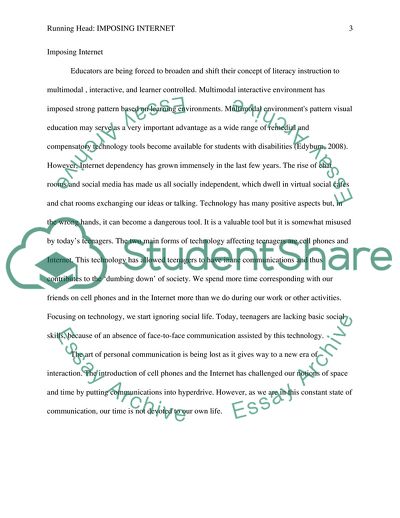Cite this document
(Imposing Internet and Its Effect on Society Term Paper, n.d.)
Imposing Internet and Its Effect on Society Term Paper. https://studentshare.org/information-technology/1805300-imposing-internet
Imposing Internet and Its Effect on Society Term Paper. https://studentshare.org/information-technology/1805300-imposing-internet
(Imposing Internet and Its Effect on Society Term Paper)
Imposing Internet and Its Effect on Society Term Paper. https://studentshare.org/information-technology/1805300-imposing-internet.
Imposing Internet and Its Effect on Society Term Paper. https://studentshare.org/information-technology/1805300-imposing-internet.
“Imposing Internet and Its Effect on Society Term Paper”. https://studentshare.org/information-technology/1805300-imposing-internet.


